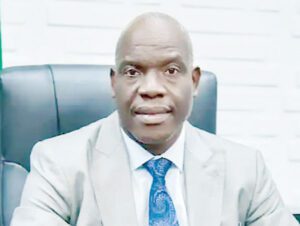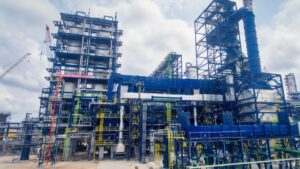
IBEDC: Anger, pain trail prepaid meters in Osun
…As residents lament high tariff, others
By Abimbola Abatta, Osogbo
Consumers of electricity have bemoaned the impact of high tariff rates on prepaid meters as well as the inability to purchase electricity units.
This is coming on the heels of the distribution of free prepaid metres under the federal government-initiated platform, the National Mass Metering Programme (NMMP).
Nigerian NewsDirect gathered that the NMMP was a response to the agitations of citizens and an avenue to meter the unmetered households across the country.
Speaking with residents of Osun State, some complained about the cost of electricity unit, which has skyrocketed, while others complained about the inability to purchase more units as they are encountering numerous challenges.
It should be noted that earlier this year, the Ibadan Electricity Distribution Company (IBEDC) began the official distribution of about 10,000 free prepaid meters to households across Osun State.
IBEDC is one of the 11 major electricity distribution companies with the license to generate, distribute, and market electricity to households in Nigerian.
The distribution company covers five regions in Nigeria which include Oyo, Ibadan, Osun, Ogun, and Kwara.
One of the residents who benefited from the free meter, Timothy Olanrewaju, averred that the average Nigerian cannot afford the high tariff rates.
Olanrewaju noted that the COVID-19 pandemic has made survival more difficult while adding that residents’ income has not changed but the cost of living has shot up.
He called on the Federal Government to subsidise electricity so that Nigerians would have access to affordable electricity while reducing mental health-related issues triggered by the pressure to survive.
In his words, “The tariff is so high that it becomes difficult for ordinary Nigerians to afford electricity, especially when you look at the economy. We are just surviving the COVID-19 impact. Even before COVID-19, the economy has been very bad, not quite healthy.
“Everything in the country has shot up so high that the money you earn as your salary that you think could pay your bill, fuel your car, etc has shot up. So, that puts more pressure on an average Nigerian, especially in Osun State. Osun, for instance, is a civil service state. What we earn has not changed. But what we spend has doubled, some tripled.
“We are paying almost triple of what we used to pay. In the past, we would buy 1500 to 2000 naira worth of electricity and it would last for a month. But now, in two weeks, we bought an electricity unit worth N6000.
“The impact is that families struggle to meet other daily needs, and while you struggle, there is probably going to be pressure on the society. When people cannot pay their bills, they think of the alternative. So, the available becomes the alternative, which is taking to crime, Yahoo Yahoo, robbery and stuff like that.
“It also increases the ill-health challenges of people. They become psychologically traumatised, and when this happens, people begin to have high blood pressure which leads to hypertension. That is why we have a high rate of hypertension among people now. If you talk to health workers, they will tell you it has tripled. Even young persons as low as 15 are having BPs.
“The government can subsidise electricity so that everybody can get it. We should also maximise whatever we are given to use because we are a very reckless nation anyway.”
Another beneficiary at Ogo-Oluwa Area in Osogbo expressed displeasure with the poor services she got which has prevented her from purchasing electricity units, noting that the distribution company should have validated and done the needful before issuing the prepaid metres.
The resident who is simply identified as Alhaja said, “What they have done is not appropriate. Everyone is complaining. I have been frequenting their office for over a week. Yet all I get is sorry, ma. This is cruel. Now, they are saying sorry. Will sorry solve the problem? What will sorry do?
“When I got there last Friday, they said they have not activated it. They removed the black meters and threw us into darkness. The surrounding houses have light, but I don’t have light. It would have been better if I was alone. But what about my tenants?
“Besides, before they give out the prepaid meters, they should have done the needful. They brought it on the 1st of April, it’s been over a week since they brought it. We enjoyed electricity for about four days. Since then, we don’t have light. Their attitude does not deserve prayers. They deserve curses. And God will repay them. Among workers in Nigeria, power suppliers are the number one in cruelty. They should receive an award on that,” she added.
Ronke Awoyele, another resident who got the prepaid meter in February said, “We got it February this year. After we exhausted the light that came with it, we encountered a lot of challenges before we were able to purchase more electricity.
“We complained at the office where we learnt that the code we would use to vend had not been processed in Ibadan. We did not have electricity for about a week. We had to go there almost every day to lodge our complaints.
“Now that we can pay for electricity, the tariff is too high unlike before. Before you know it, you would have used up the electricity unit you bought.”
On the part of the IBEDC, the Regional Communications Manager, Ms Kikelomo Owoeye noted that the NMMP is an attempt to “meter the unmetered customers.”
The Communications Manager said, “the unmetered customers are the customers that do not have meters but are receiving bills through estimated billing. They are on our record as consumers, not customers.”
Noting that customers would pay according to the energy they consume, she said, “Customers think when they get the prepaid meters, it would shrink their bills. A lot of people tamper with their meter. They engage in energy theft. They bypass, and it affects their bills. The prepaid meter will let you know what you are using, and it will even teach you how to manage your energy.
“When you get your prepaid meter, if you have an outstanding bill, it would be factored in that meter and spread across 12 months. It is advisable for customers to pay 50 or 60 percent of the outstanding debt upfront. Most people can’t vend because of this. And they refuse to pay the outstanding bills.
“A customer can contest the outstanding bill by formally requesting a credit adjustment. After we have conducted an investigation, if we find out that they need to be adjusted, we will do the needful.”
She enjoined customers not to fall victims to fraud, noting that the prepaid meters are free and “there is no way of influencing it.”
“Government cannot afford the N50,000 billion subsidy anymore. Let’s learn to manage our energy within our premises. Disconnect unused appliances. Many people waste energy. Acquire energy-saving appliances.
“Customers should also check their earthing system. It protects the building. If it malfunctions, it causes shock. It can also affect both the black and prepaid meters. Customers need to check their earthing system is not only protects lives and property, but it also helps in energy-saving,” she added.



